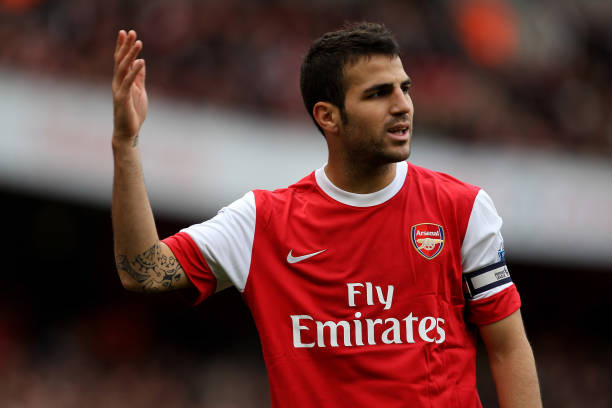
The Armband’s Unseen Weight: A UCL Captain Performance Review
The UEFA Champions League, football’s most prestigious club competition, is a crucible where legends are forged and dreams are shattered. Amidst the tactical masterclasses, individual brilliance, and raucous atmospheres, there exists a figure whose influence often transcends mere technical skill: the captain. More than just an armband wearer, the UCL captain is the emotional fulcrum, the tactical general, and the ultimate embodiment of their team’s ambition. This comprehensive review delves into the multifaceted performance of Champions League captains, examining the diverse ways they impact their teams and the unique pressures they navigate under Europe’s brightest lights.
The Multifaceted Role: Beyond the Kick-Off Coin Toss
A Champions League captain’s performance isn’t solely judged by goals scored or tackles won. It’s an intricate tapestry woven from leadership, resilience, tactical acumen, and the ability to inspire. The role demands an exceptional blend of personal character and on-field excellence, particularly in the high-stakes environment of continental knockout football.
1. The On-Field General: Tactical Acumen and Direction
Great UCL captains possess an innate understanding of the game’s flow. They are extensions of the coaching staff on the pitch, reading situations, adjusting formations, and communicating tactical directives in real-time.
- Sergio Ramos (Real Madrid): Perhaps the quintessential modern UCL captain. While known for his last-ditch tackles and clutch goals, Ramos’s true captaincy shone in his defensive organization and unwavering will to win. He marshalled the backline, initiated pressing traps, and was often seen directing teammates, regardless of their position. His leadership was particularly evident in the dying minutes of tight encounters, where his calm (or sometimes chaotic) presence often tipped the scales. His role in Real Madrid’s four UCL titles in five years was not just as a defender, but as a relentless, demanding leader who ensured tactical discipline even when under immense pressure.
- Philipp Lahm (Bayern Munich): The "intelligent leader." Lahm’s captaincy was less about vocal exhortations and more about understated tactical brilliance. He was a master of positional play, always in the right place, dictating tempo from full-back or midfield. His quiet authority commanded respect, and his consistent, error-free performances set an impeccable standard. He epitomized the concept of leading by example, consistently executing the coach’s plan with precision and rarely succumbing to pressure. His lifting of the trophy in 2013 was a testament to his understated yet profound influence.
- Xavi Hernandez (Barcelona): Though not always the primary captain, Xavi’s leadership during Barcelona’s golden era was pivotal. As the midfield maestro, he dictated the tempo, controlled possession, and orchestrated attacks with unparalleled vision. His constant communication and positional awareness ensured Barcelona’s tiki-taka philosophy was executed flawlessly. He was the on-field embodiment of Pep Guardiola’s tactical genius, a conductor who ensured every instrument played in harmony.
2. The Beacon of Inspiration: Emotional Leadership and Motivation
In moments of adversity, when the crowd is against them, or a deficit needs to be overturned, the captain’s ability to inspire and motivate is paramount. This emotional leadership can be the difference between capitulation and a heroic comeback.
- Steven Gerrard (Liverpool): The "Miracle of Istanbul" in 2005 stands as the ultimate testament to Gerrard’s inspirational captaincy. Trailing 3-0 at halftime, it was Gerrard’s goal, followed by his relentless drive and refusal to yield, that spurred Liverpool to one of the greatest comebacks in football history. His sheer force of will, his passionate rallying of his teammates, and his belief in the impossible transformed a lost cause into a triumph. He was the embodiment of the club’s fighting spirit.
- Carles Puyol (Barcelona): A warrior through and through, Puyol’s captaincy was defined by his unwavering commitment, incredible bravery, and an infectious desire to win. He led by example, throwing his body on the line, chasing every ball, and demanding the same intensity from his teammates. His presence alone seemed to instill courage, particularly in young players. He wasn’t the most technically gifted, but his heart and passion were unparalleled, making him a revered figure in the dressing room and among fans.
- Paolo Maldini (AC Milan): The epitome of grace, longevity, and calm authority. Maldini’s leadership was characterized by his serene presence under pressure, his impeccable professionalism, and his deep understanding of the game. He wasn’t a vocal leader in the Gerrard mould, but his consistent excellence and quiet determination inspired confidence. He won five Champions League titles over a career spanning nearly a quarter-century, a testament to his enduring quality and the respect he commanded.
3. The Stoic Anchor: Resilience Under Pressure and Crisis Management
The Champions League is unforgiving. Moments of individual error, contentious refereeing decisions, or simply being outplayed can lead to panic. A captain’s ability to maintain composure, steady the ship, and ensure discipline is vital.
- Gianluigi Buffon (Juventus): While never winning the UCL, Buffon’s leadership across multiple campaigns showcased incredible resilience. He guided Juventus through numerous finals and semi-finals, often carrying the burden of expectation with immense dignity. His calming presence in goal, his ability to rally defenders, and his composed demeanor even in defeat made him an exemplary leader who inspired respect across the football world.
- Jordan Henderson (Liverpool): After the heartbreak of the 2018 final, Henderson’s captaincy was crucial in rebuilding morale and guiding Liverpool to UCL glory in 2019. He exhibited quiet strength, tirelessly working, pushing his teammates, and maintaining belief. His ability to absorb pressure and lead by example, often in the shadow of more flamboyant players, solidified his status as a genuinely effective captain.
4. The Apex Performer: Leading by Example with Technical Brilliance
Sometimes, the captain’s greatest contribution is simply being the best player on the pitch, inspiring others through their sheer individual brilliance and consistent high performance.
- Cristiano Ronaldo (Manchester United/Real Madrid/Juventus): While not always the official captain, Ronaldo often assumed a de facto leadership role due to his immense influence and match-winning capabilities. His insatiable desire for goals, his relentless pursuit of excellence, and his decisive performances in big games inspired his teammates to reach higher levels. He led by example through his performance, setting an incredibly high bar for commitment and output.
- Lionel Messi (Barcelona/PSG): Messi’s captaincy has often been a topic of debate. While his genius on the ball is undeniable and his ability to win games single-handedly is unparalleled, his leadership style is more introverted. He leads through his magical performances, expecting others to follow suit. While he may not be the vocal rallying cry, his unwavering pursuit of victory and his unparalleled skill consistently lift his team’s performance. The challenge for Messi as captain has often been bridging the gap between his extraordinary individual talent and the collective leadership required.
5. Beyond the Pitch: The Ambassadorial Role
A UCL captain also represents the club off the pitch, handling media, protecting teammates, and embodying the club’s values. This can be a subtle but significant aspect of their overall performance. They are often the first to speak to the media after a defeat, setting the tone for how the team will regroup.
The Evolution and Modern Challenges of Captaincy
The role of the captain in the Champions League has evolved. The traditional image of the fiery, vocal leader is still valued, but increasingly, tactical intelligence, emotional control, and the ability to lead by quiet example are equally prized. With highly detailed tactical instructions from the dugout, the on-pitch general role might be less about improvising new plans and more about ensuring the existing plan is executed flawlessly.
One significant challenge for modern captains is the intense scrutiny. Every gesture, every facial expression, every post-match comment is dissected. A captain’s composure under this relentless spotlight is crucial, as any sign of weakness can be amplified.
Conclusion: The Enduring Legacy of the Armband
The Champions League captain is more than a symbolic figure; they are the beating heart of their team in Europe’s elite competition. From the tactical brilliance of a Lahm to the raw inspiration of a Gerrard, the stoic calm of a Maldini, and the relentless drive of a Ramos, the performance of these individuals often dictates the fate of their clubs.
Their leadership is not monolithic; it comes in various forms – vocal, quiet, tactical, inspirational, or through sheer performance. What unites the most effective UCL captains is their unwavering commitment to excellence, their ability to perform under unimaginable pressure, and their profound impact on their teammates. They are the ones who embody the spirit of the Champions League: the relentless pursuit of glory, the resilience in the face of adversity, and the enduring power of leadership under the brightest lights. The armband, truly, carries an unseen, yet immeasurable, weight in the Theatre of Dreams.



